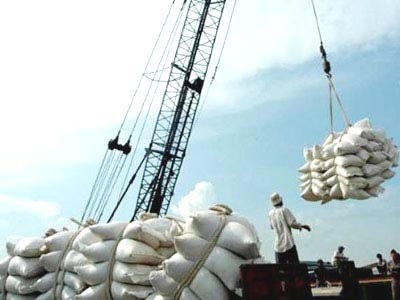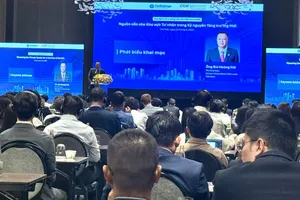The target of restricting the trade deficit to 20 percent of export turnover this year looks to be a daunting task, since the deficit over the past three months is estimated at US$3.51 billion, or around 25 percent.

The Industry and Trade Ministry made the statement March 25 at a meeting with groups, associations and enterprises to seek measures to curb the trade gap.
The ministry said the trade gap in the first two months of the year was US$2.16 billion, equal to 24.4 percent of export turnover.
The ministry blamed the increase on a spike in global prices.
It asked other ministries, sectors and enterprises to coordinate closely and make efforts in the coming months to constrain the deficit to 20 percent, or US$12.2 billion, for 2010.
Huynh Dac Thang, deputy head of the ministry’s Planning Department, said to close the gap and increase exports, measures should be taken that relate to the industry but not trade sectors.
When imports decrease, the deficit will fall. However, as a long-term measure, it’s necessary to develop domestic industries, especially auxiliary ones to reduce the import of raw materials, and thus boost local production and exports, he added.
Le Tien Truong, deputy general director of Vietnam Textile and Garment Group, said the credit growth rate set for the textile and garment industry should be raised because at the current rate of 25 percent, enterprises have faced many difficulties in conducting business.
Related agencies need concrete solutions related to mobile credit to facilitate production, he added.
Deputy Minister Nguyen Thanh Bien said the ministry will monitor imports of commodities that can be made in the country through taxation and non-taxation measures within the framework of Vietnam’s laws and commitments in global economic integration.
The ministry has also asked the Central Bank to order commercial banks to create favorable conditions for enterprises, especially those who produce commodities for export, to obtain loans, and not let loans with negotiable rates offered for other purposes affect their businesses.
























